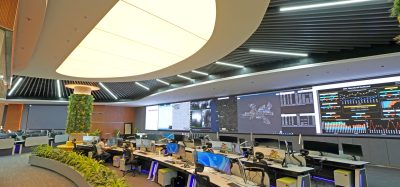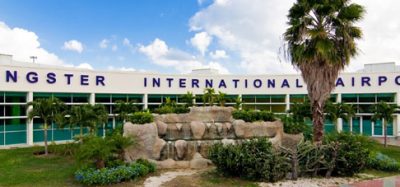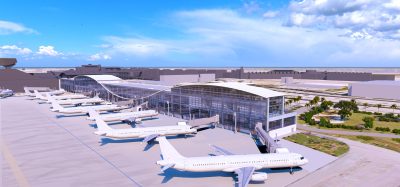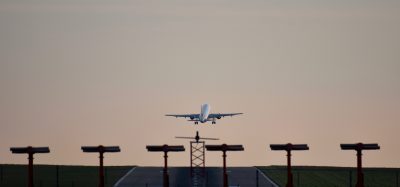Nice Côte d’Azur Airport deploys COVID-19 antigen tests
Posted: 6 November 2020 | International Airport Review | No comments yet
The test results are available in only 30 minutes and the scheme is intended to be rolled out to other airports in the long-term.
Nice Côte d’Azur Airport has organised and established a room dedicated to COVID-19 antigen tests in its Terminal 2. This arrangement represents a full-scale test that aims to be deployed on a wider scale long-term in other airports.
The airport, which has ensured an uninterrupted public service since 16 March 2020, has now opened its first comprehensive technical platform, supervised by health authorities, for organising antigen tests.
The tests are offered on a voluntary basis to passengers travelling to French overseas territories via Orly Airport (ORY) or Paris-Charles de Gaulle Airport (CDG), or to Rome. However, they are also available to all outbound travellers on request.
Air France and Alitalia are involved during this experimental phase. These partnerships allow the airport to anticipate the number of travellers due to board the partnered flights and, therefore, optimise the sampling and testing room. This enables up to six stations to be made available simultaneously, and four for the administrative, registering, and passenger tracking phases. The testing rooms are open every day from 05:00, and its operations will be monitored and modified based on air traffic over the coming weeks.
By covering its costs through the French health insurance system, the airport aims to reassure passengers, combat the spread of the COVID-19 virus and facilitate the reopening of borders, according to bilateral agreements recognising the validity of the tests.
Commenting on the scheme, Franck Goldnadel, Chairman of the Board for Aéroports de la Côte d’Azur, said: “By working hand-in-hand with French public services, the city of Nice, the health authorities, the airlines and their ground handling agents, we are creating the optimal conditions to enable the largest number of people to be tested, all while maintaining fluid passenger flows and the punctuality of departing flights. We would like to thank the Minister for Transport, his teams and all the partners in this pilot project for having trusted us to implement this experiment, which is set to be deployed on a wider scale.”
Operating procedure
Passengers travelling from Nice Airport will be able to turn up to the testing centre from four hours to 90 minutes before their flight and take the test free-of-charge. They will then receive their test results in 30 minutes.
Passengers will be informed of the process by their airline and asked to download and fill in the information form from the Nice Côte d’Azur Airport website.
The antigen tests extend the services provided by the PCR testing room opened in mid-July 2020, under the aegis of the regional health authority, which had already enabled passengers to get tested.
The introduction of this testing service forms part of a comprehensive policy, initiated by the airport on 16 March 2020 and which satisfies all the recommendations of the various health authorities.
In line with this policy, disinfection agents are being employed to supplement the usual cleaning staff. These agents wear PPE and use virucidal surface disinfectants that have been in use since the emergence of COVID-19.
Automatic hand sanitiser dispensers have been installed along routes taken by passengers through the airport, near the self-service check-in terminals and at security checkpoints etc. This service supplements the reinforced health protection measures in all toilet facilities, which are now equipped with air and surface purifiers. The system uses a unique and patented technology based on purifying UV radiation that does not pose a health risk. By operating continuously, it guarantees that spaces are kept sanitised at all times.
Likewise, the terminal ventilation networks have been upgraded with the high-performance filtration of indoor air. The existing quality of air treatment is said to have increased by 50 per cent by replacing the F7-type filter models with F9-type filters like those used in hospitals.
Finally, to inform its passengers of social distancing measures, and to complement the signage implemented in the airport, an educational film was recorded and put online at the height of the summer, shown above.
Join our free webinar: Beyond silos: How ecosystem thinking elevates the airport experience
In today’s complex aviation landscape, airports are moving beyond siloed operations to embrace a new era of collaboration. This webinar focuses on how leading airports are using ecosystem thinking to adapt, personalize, and continuously improve every touchpoint, boosting both passenger satisfaction and non-aeronautical revenue.
Date: 13 Nov | Time: 10:00 GMT
REGISTER NOW TO SECURE YOUR SPOT
Can’t attend live? No worries – register to receive the recording post-event.
Related topics
Related airports
Nice Côte d'Azur Airport (NCE), Paris Charles de Gaulle Airport (CDG), Paris-Orly (ORY)


















